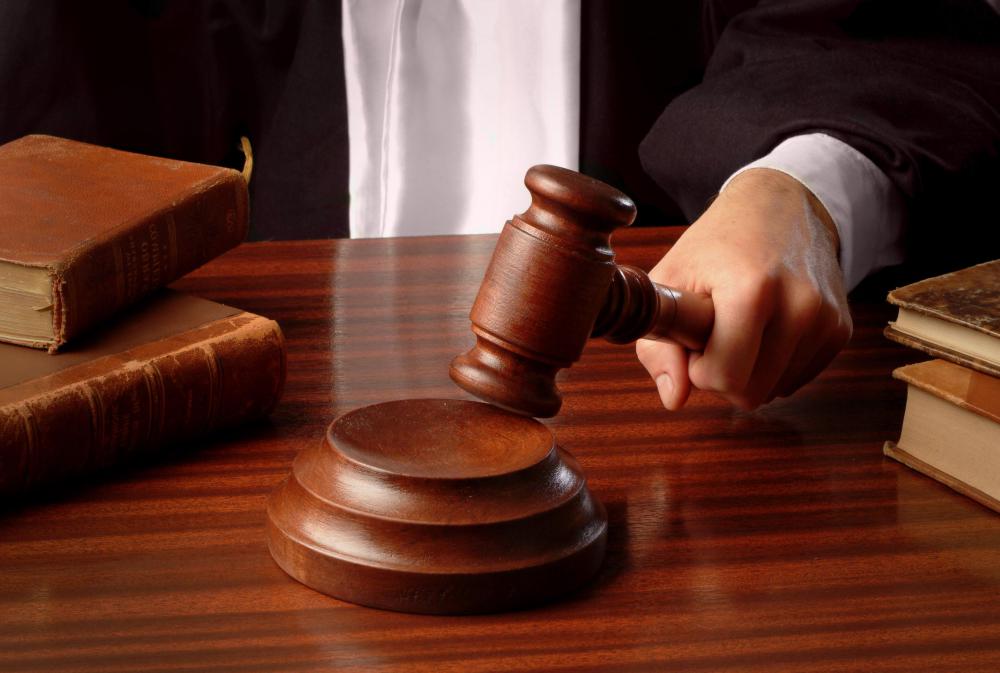At WiseGEEK, we're committed to delivering accurate, trustworthy information. Our expert-authored content is rigorously fact-checked and sourced from credible authorities. Discover how we uphold the highest standards in providing you with reliable knowledge.
What is Dispute Resolution?
Dispute resolution, in its most basic form, is the process of finding a solution to a point of contention between two or more parties or individuals. In the legal sense, dispute resolution includes specific methods of resolving disputes, such as through lawsuits, through arbitration and through mediation. These three methods are commonly used in courts throughout the world to establish a conclusion to a wide variety of disputes and disagreements.
A lawsuit is the most formal legal method of resolving a dispute. In order to bring a lawsuit against another party, an individual must file a complaint that contains an actionable claim. Actionable claims are disputes that the body of laws in a jurisdiction can resolve. For instance, a dispute regarding the terms of a contract is an actionable dispute because laws, statutes, regulations and codes exist to resolve these types of issues.

Filing a lawsuit against someone because they happen to like one color over another, for example, is not an actionable claim, because no legal remedies exists on that issue. Lawsuits are decided either by a judge or by a jury. During a lawsuit, both sides to the suit present evidence and witnesses to persuade the judge or jury to rule in their favor. After a final ruling is made on the issue, the dispute is resolved, unless one of the parties chooses to appeal the ruling to a higher court.

Arbitration is an alternative form of dispute resolution that is commonly used by businesses and other individuals before filing a lawsuit. It works in a manner similar to that of a formal trial, but the parties to the dispute present their case to a panel of arbitrators instead of to a judge or a jury. Most arbitrators are attorneys who practice in that jurisdiction.

During an arbitration, the arbitrators will listen to the parties' dispute, view their evidence and rule on the issue. Arbitration is considered to be "non-binding" in some jurisdictions, which means that the losing party is not obligated to comply with the ruling of the arbitrators. In such as case, the winning party will need to file a formal lawsuit and receive a subsequent judgment in that party's favor. Despite its informalities, arbitration is one of the most favored forms of dispute resolution because it saves each party the time and money that is required for litigation in a lawsuit.

Mediation is the most casual legal form of dispute resolution. A mediator is an individual who works with both parties to a dispute in the hopes of bringing the parties together to reach an agreement. The mediator generally makes suggestions and recommendations to the disputing parties, but those suggestions and recommendations are not binding upon the parties.
AS FEATURED ON:
AS FEATURED ON:














Discussion Comments
I have strong documented evidence which clearly shows that social services, solicitors, police, crown prosecution services and the court service have all breached their codes of conduct.
Because I made a complaint to the law society about the solicitor's behavior (which was not upheld in "light of the evidence"), I cannot get legal representation, as all have closed ranks. Can anyone please advise me if I could take this case to a tribunal and represent myself?
In reality, the whole case consists of conspiracy, collusion, misconduct in a public office, or whatever the term they wish to use. I would be most grateful for any advice.
Post your comments